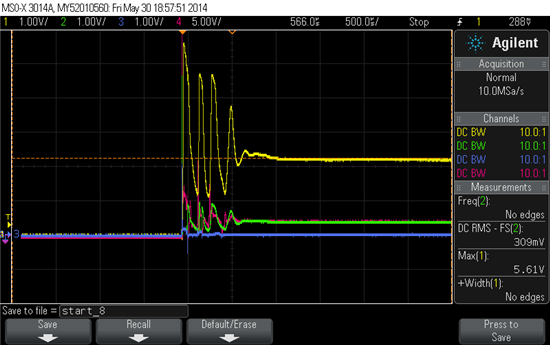Hello,
I use the TPS54231 for a while on my boards now, Never had problems but now I have ordered the same PCB with only the catch diode changed (now: PMEG4050ETP) and another brand of inductor I get problems. (new inductor is rated at 3.8A instead of 3A in the past)
With several PCB's The chip blew itself after starting up from 24V (mosfet =0R) and this now also happens sometimes at 12V. Slowly increase voltage from 7V gives no problem. Then I can go up to 28V)
Looking at the schematic now I have huge doubts if I have designed the the Compensation circuit well.. could this have any influence on the startup sequence resulting in a damaged chip?
One imporant thing to notice is that a "Bestcap" (100mF super pulsecapacitor) is attached after the diode. So it takes a while before the DC/DC converter has started up.
An additional strange thing is that the chip also gets damaged when I have limited the input current at 100mA f.e.
Sorry I am not so experienced with these techniques, I hope you can help me.
best regards,
Xander








